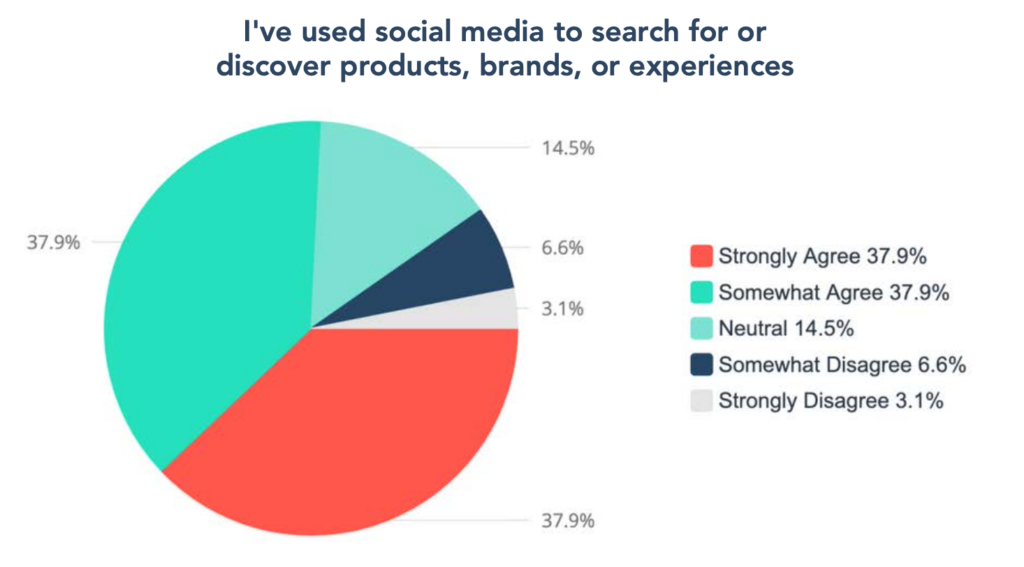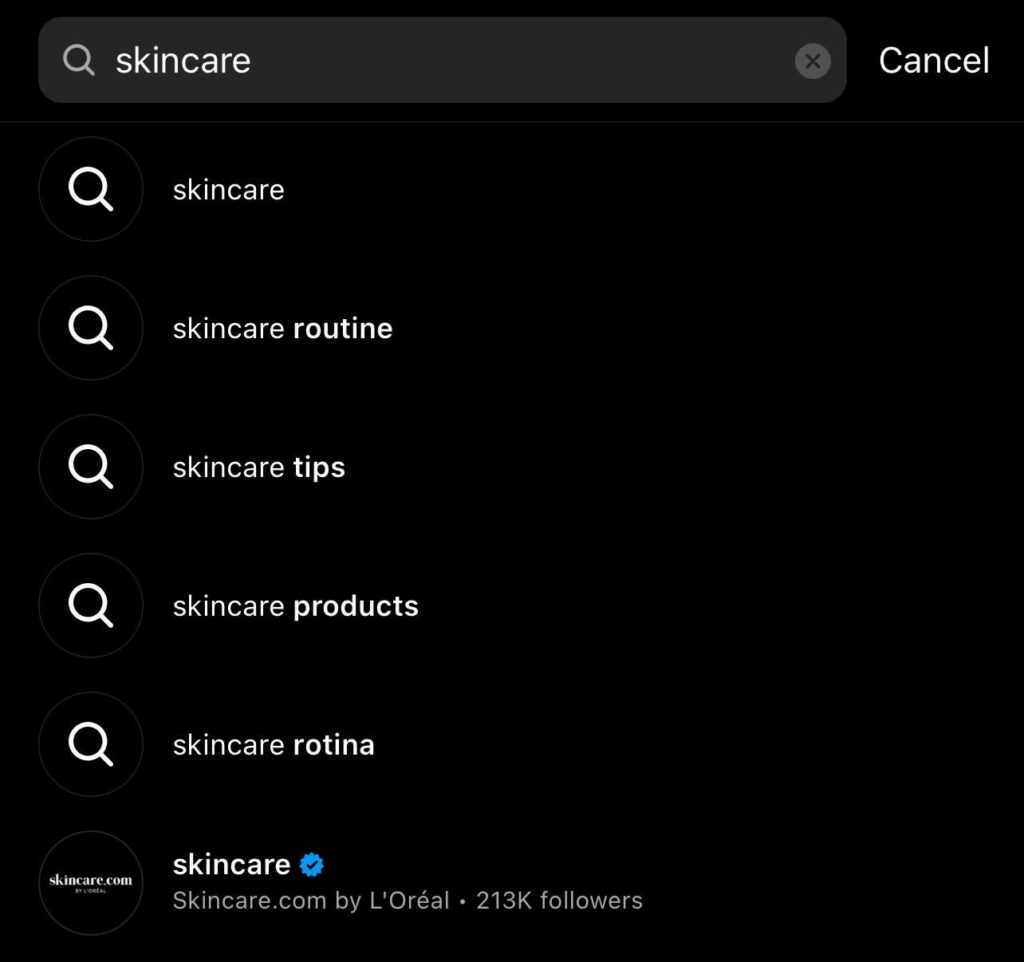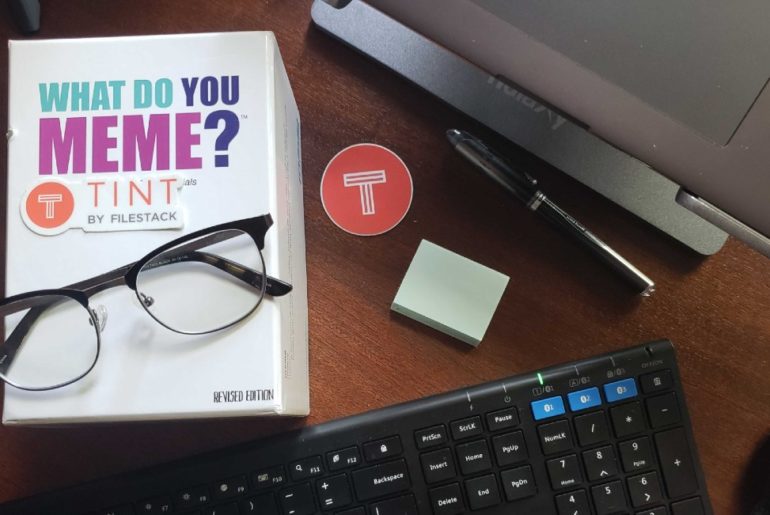Social media is now a search engine. Social media platforms began as places for connecting with friends and family. Today, it’s evolved into something much different.
People spend an average of 65 minutes daily scrolling on social media platforms.
That’s 7.5 hours a week.
People are no longer using social media just to connect with friends and family. They also use it to seek out brands, new products, and influencers. This is social search, the newest iteration of the search engine.
As more and more people began using social media platforms to share and discover new products, brands, and experiences, social media platforms have transformed into powerful search engines.
In our 2023 State of Social and User-Generated Content Report, we found that the majority of consumers use social media as a search platform.
Here’s how brands can effectively leverage social media as a search engine to be well-positioned to reach and engage with potential customers in the digital age.
Social Media as a Search Engine Statistics 2023
According to our study, 75.78% of consumers have used social media to search for or discover new products and brands, and 68.75% of consumers have made a purchase based on something they saw on social media.
This highlights the significant role that social media plays in the process of finding and buying new things.
“Social platforms are evolving into search engines for consumers to discover brands and products. Monitoring what content is performing well in your industry can guide you on what content and influencers to work with on each of these platforms,” says Benjamin Beck, Director of Marketing at Tortuga Backpacks.

Facebook, Instagram, and YouTube are among the most popular platforms for such searches, with Facebook being particularly popular among older demographics. However, other platforms, such as Pinterest and TikTok, are also gaining traction as search engines for discovering new products and experiences.
This has now created a demand for marketing and digital practitioners who understand and can create content that is search engine optimized for social search. Welcome to Social SEO.
How Consumers Will Use Social Media as a Search Engine
If you were to peek over someone’s shoulder as they used social media as a search engine – what would you see?
At its most basic level, people use social media as a search engine by using the search function on various social media platforms to find products, brands, and experiences that interest them.
Many social media platforms, such as Facebook, Instagram, and YouTube, have a search bar at the top of the screen that allows users to search for specific terms or hashtags. If a consumer is interested in finding a new skincare brand, they could search for “skincare” or related hashtags on social media to see what brands and products appear in the search results.

One step beyond basic search is when people follow brands and influencers, hoping to find products that pique their interest. Since people trust user-generated content more than brand-created content, they prefer to seek the advice of their peers, which includes influencers and creators. This advice can come directly from the influencer or creator’s profile or be reposted on the brand’s account.
Melissa Wood Tepperberg is an influencer connecting with her audience over a healthy balanced lifestyle. Her health-related content creates a space where followers can look for aligned products. Melissa’s audience can scroll through her account to find supplements, beauty products, food, and clothing they know are Melissa-approved. Melissa’s team puts together holiday gift guides aligned based on the products she vouches for.
View this post on Instagram
Past searching and following influencers, social media users also use the platform to search for products within the content. Many social media platforms have “explore” or “discover” sections that recommend content to users based on their interests, which can be useful for finding new products and experiences. Instagram even shows related searches they think users would be interested in based on their behavior.

Consumers are using social media as a search engine and are becoming more adept at finding what they want on the platforms. As algorithms continue personalizing the scrolling experience, brands must cater to these algorithms to ensure they know their ideal viewer, follower, and buyers.
How Brands Can Use Social Media as a Search Engine
Brands can use social media as a search engine by creating a strong presence on the most popular social media platforms and optimizing their content for search. This can involve using relevant keywords and hashtags in their posts, using visually appealing and high-quality images, and including links to their website and products.
The key is giving algorithms the information they need to know that your content resonates with a specific audience. As social media platforms continue to lean into SEO, brands need to stay up-to-date on what they can do to increase visibility.
Here are a few tips to get started using social media as a search engine:
- Use relevant keywords and hashtags: By including relevant keywords and hashtags in their social media posts, brands can increase the chances of their content appearing in search results.
- Use visually appealing and high-quality images: Social media is a visual platform, so using visually appealing and high-quality images can help attract attention and increase engagement.
- Include links to their website and products: By including links to their website and products in their social media posts, brands can make it easy for users to access more information and make a purchase.
- Engage with followers and respond to comments and messages: By interacting with followers and responding to comments and messages in a timely manner, brands can increase engagement and help their content appear higher in search results.
- Utilize paid advertising: Brands can use paid advertising on social media platforms to increase their visibility in search results and target specific demographics.
Social media as a search engine is just the beginning. As social platforms continue to build out the one-stop-shop experience of social media, brands can expect that the majority of their marketing will sit in a single funnel. The key to a successful social media SEO strategy is learning how to make that funnel works best for you. The best way to stay ahead is to know exactly what consumer trends will shape social media in the coming year.
Get access to our 2023 State of User-Generated Content Report to see the six other themes that will change marketing in 2023. Get the report for free here.




